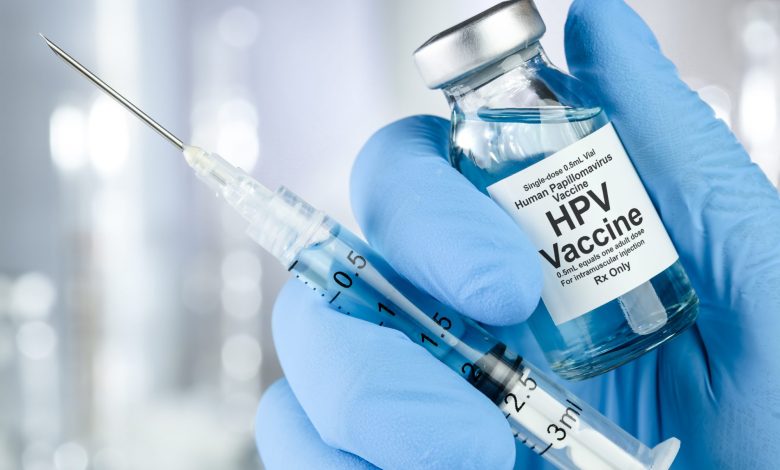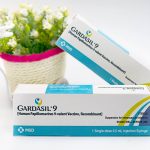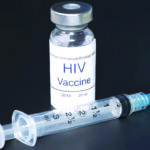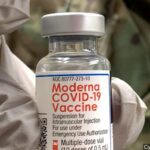HPV Vaccine Banned In What Countries?

Human Papillomavirus (HPV) is one of the most common sexually transmitted infections globally. It can lead to various health issues, including genital warts and certain types of cancers. The HPV vaccine has been widely embraced as a preventive measure to curb the spread of the virus and reduce the associated health risks. However, despite its widespread acceptance and recommendation by global health organizations, there have been instances where the HPV vaccine has faced opposition and even bans in certain countries.
This article delves into the controversy surrounding the HPV vaccine bans in specific nations, exploring the reasons, implications, and potential consequences of such decisions.
The HPV Vaccine and its Benefits
The HPV vaccine was developed to protect individuals from the most common strains of the virus that can cause cervical cancer, as well as other forms of cancer and genital warts. It has proven to be highly effective in preventing these conditions, with numerous studies demonstrating its safety and success. Given the potential for significant health benefits, many countries have incorporated the vaccine into their routine immunization schedules, primarily targeting young adolescents before they become sexually active.
Global Acceptance and Recommendations
Global health organizations such as the World Health Organization (WHO) and the Centers for Disease Control and Prevention (CDC) strongly recommend the HPV vaccine as a crucial tool in the fight against HPV-related diseases. These recommendations are based on comprehensive scientific research and clinical trials that have shown the vaccine’s effectiveness in reducing HPV infections and related health complications.
Controversial HPV Vaccine Bans
Despite the widespread acceptance of the HPV vaccine, there have been instances where certain countries have opted to restrict or limit its usage which could have some far reaching consequences. According to a study published in The Lancet Public Health, the recent decision by Japan to withdraw its recommendation for adolescent girls to receive the HPV vaccination could potentially lead to an estimated 11,000 deaths from cervical cancer if the policy is not reversed.
The HPV vaccine has sparked significant controversy in Japan, becoming a focal point of political debate due to concerns over potential side effects. These concerns prompted the government to cease actively promoting the vaccination in June 2013. Some other reasons behind these types of decisions can include:
Cultural and Religious Beliefs
In some societies, cultural or religious beliefs might lead to opposition against vaccination, particularly for diseases associated with sexual transmission. These beliefs can foster skepticism about the necessity and appropriateness of the HPV vaccine. Mgr Luc Onambele, Vicar General of the Obala Diocese in the Centre region of Cameroon, banned the distribution of the Gardasil vaccine to girls for cervical cancer prevention. This decision is shared by the local Muslim organization. Both the Muslim community and the Catholic Church, which also opposes vaccine administration within the Diocese’s institutions, cite concerns over its adequacy and timing for girls aged 9 to 13 years.
Lack of Awareness
Limited public awareness about the crucial significance of the HPV vaccine and the substantial benefits it offers can create an environment of uncertainty and apprehension. When individuals lack comprehensive knowledge about the vaccine’s ability to prevent human papillomavirus infections and the subsequent development of cervical cancer and other related health issues, doubts can emerge. The absence of clear information about the vaccine’s potential to save lives and enhance public health can inadvertently give rise to vaccine hesitancy. This hesitancy may then translate into actions such as bans on vaccine administration or a reluctance among the populace to receive the vaccine. In these cases, misinformation or a lack of accurate education about the vaccine’s efficacy might inadvertently contribute to a suboptimal uptake of this crucial preventive measure, which is designed to protect against the transmission of a highly prevalent and potentially dangerous virus.
Political Factors
At times, healthcare decisions can become entangled with political considerations, which can have significant implications for public health initiatives. Political factors have the potential to influence the decision-making process, sometimes leading to actions such as bans, restrictions, or changes in healthcare policies. In some cases, these decisions may not be grounded in solid scientific evidence or genuine public health concerns.
When political agendas intersect with healthcare decisions, the outcomes can be complex and multifaceted. Decisions influenced by political motivations might prioritize political interests over the well-being of the population. Such actions may involve imposing bans on certain medical interventions, restricting access to essential treatments, or altering healthcare policies for reasons that extend beyond objective health considerations.
Misinformation
The spread of misinformation and pseudoscientific claims about vaccines, including the HPV vaccine, can contribute to public apprehension and mistrust. Unfounded fears about vaccine safety and efficacy can sway public opinion and lead to bans or restrictions.
In addition, the claim that Merck is on trial for fraud related to its human papillomavirus (HPV) vaccine, which has been banned in other countries and has been found to cause cancer, is false. While Merck does face civil lawsuits regarding its HPV vaccine, Gardasil, none of these cases have reached the trial stage. This means that there is no ongoing trial for fraud involving the HPV vaccine. Both Merck and a law firm representing plaintiffs with claims related to the vaccine confirm this fact.
The HPV vaccine, including Gardasil, has undergone extensive testing and clinical trials to ensure its safety and efficacy. It is approved for use by regulatory agencies in many countries, including the United States’ Food and Drug Administration (FDA) and the European Medicines Agency (EMA). These agencies rigorously review scientific evidence before granting approval for vaccines.
A recent study published in the Journal of the American Medical Association (JAMA) found that the HPV vaccine Gardasil is safe and does not carry any higher risks compared to other vaccines. The study’s findings provide valuable insights into the safety profile of the vaccine and offer reassurance to individuals considering vaccination.
The study’s results indicate that the overall safety profile of Gardasil is consistent with that of other vaccines commonly administered. While the study recognizes that there is a small chance of fainting or developing a blood clot after receiving the Gardasil shots, these risks are on par with what is observed with other vaccinations. It’s important to note that fainting and blood clot occurrences are infrequent and typically fall within the expected range for vaccines.
Contrary to the claim, the HPV vaccine has not been banned in any countries. The vaccine is recommended as an effective preventive measure against certain strains of the human papillomavirus that can lead to cervical cancer and other health issues.
The claim that the HPV vaccine causes cancer is also false. Multiple scientific studies and regulatory agencies have consistently shown that the HPV vaccine does not cause cancer. In fact, the vaccine is designed to prevent certain types of HPV infections that can lead to cancer.
Misinformation about vaccines can have serious public health implications. It’s important to rely on credible sources, such as health agencies, medical experts, and scientific research, when seeking information about vaccines and their safety.
Implications and Consequences
Banning the HPV vaccine in any country can have significant implications for public health. By restricting access to a vaccine that is proven to prevent HPV-related diseases, governments risk an increase in the prevalence of cervical cancer and other associated health issues. Moreover, limiting vaccination can hinder global efforts to eradicate preventable diseases, affecting not only the health of the population but also the country’s healthcare system and economy.
Promoting Informed Decision-Making
While it’s important to acknowledge the concerns of those who oppose the HPV vaccine, public health decisions should be informed by scientific evidence, rigorous research, and the collective expertise of global health organizations. Efforts to combat misinformation and enhance public education about vaccines can help address concerns and misconceptions that may contribute to bans.
Conclusion
The HPV vaccine has the potential to significantly reduce the burden of HPV-related diseases and save countless lives. While some countries have chosen to limit its usage due to cultural, religious, or political reasons, such decisions come with considerable public health risks. It is crucial for governments, healthcare professionals, and communities to work collaboratively to address concerns, provide accurate information, and make evidence-based decisions that prioritize the well-being of their citizens.





